If you’ve experienced bucking or jerking of your vehicle when it accelerates, the very first thing you need to do is to identify and fix the problem as soon as possible.
This is for your safety and to also minimize the chances of irreparable engine damage. Here’s a list of probable causes from Philkotse.com. Of course, we also give you valuable advice on what to do.
1. Worn-out ignition parts
Ignition parts include ignition wires, coil packs, and spark plugs. Over time, these parts wear out and you need to replace them. Faulty components will adversely affect your electrical system. Spark is needed to ignite the fuel in the piston cylinders; a problem will cause engine misfire in the particular cylinder.
You should not ignore this problem because it will worsen gradually and will give the driver unnecessary trouble. Fortunately, you can solve the problem by replacing the said parts. It is an inexpensive and easy process which should be done on a regular basis to prevent the problem from occurring.
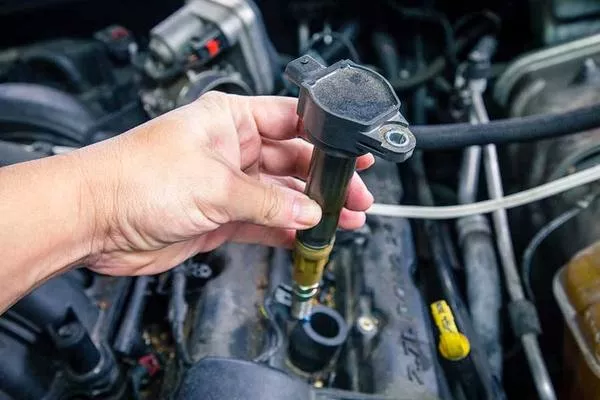
Over time, ignition parts wear out and need replacement
>>> Related: 5 symptoms of bad ignition switch: How to fix them & replacement cost
2. Faulty fuel and air mixture
Another possible cause why your vehicle jerks when you accelerate is a faulty fuel system. Filthy fuel injectors obstruct the constant flow of fuel in the engine which causes misfires. Other components of the fuel system can be the reason for engine misfire such as:
- A declining air-flow mass sensor, causing an irregularity of fuel and air ratio which enters the engine of your car. Vehicle engines utilize fuel and air to ignite the piston’s movement within, enabling the car to move.
- An obstructed fuel filter which will eventually begin to block fuel from reaching the injector system which affects the working of the engine. It will then cause the vehicle to hesitate when accelerating.
- A dirty EGR valve can reroute and stick exhaust emission toward the intake manifold, resulting in a misfire.
- A cracked fuel line resulting in the loss of air pressure that flows through the system. It will result in jerking when accelerating. Additionally, it can also be the reason for engine explosions and fires which is why it should be repaired as soon as possible.
- A failing fuel pump that can't provide the needed pressure in pumping fuel to the engine. It can possibly be the reason why the car lurches when driven up a steep hill.
- A catalytic converter, which is responsible for regulating the emissions leaving the vehicle, can get clogged, causing your vehicle to jerk.
- A bad or damaged carburetor which will not be able to regulate the quantity of fuel and air that reaches toward the engine cylinders which will affect the combustion cycle.
The “check engine light” will illuminate to notify you if any of the said components of the fuel system is clogged or damaged. The best thing to do to prevent blockage or clogging is to regularly clean the fuel system components. However, if it is already blocked or clogged, it's best to contact a qualified mechanic immediately.
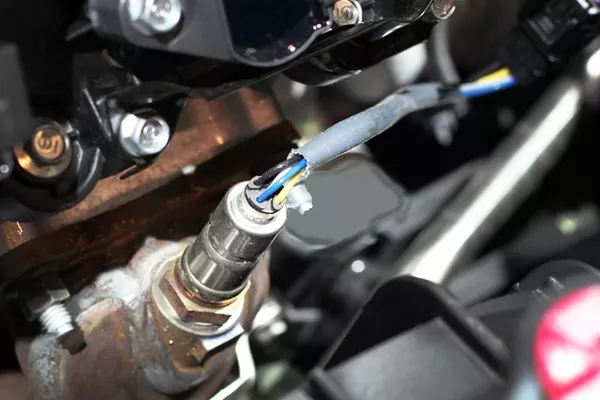
A declining air-flow mass sensor causing an irregularity in the fuel and air ratio
3. Damaged or faulty engine cylinders
Damaged engine cylinders will eventually affect the ability of the engine to have a full combustion cycle which will cause engine misfire. One noticeable sign of a faulty cylinder is the exhibition of a strong odor. If this occurs, it's important to bring your vehicle to a qualified mechanic or auto repair shop. This is to prevent greater damage to the engine.
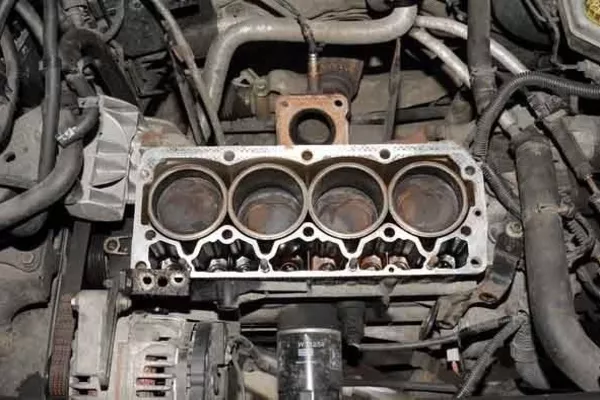
Damaged engine cylinders can be very costly if left unchecked
>>> Grab your attention: 6 steps to increase the power of a four-cylinder car.
4. Collected moisture in the vehicle's distribution cap
If you park your vehicle outside, especially during rainy or cold weather, chances are moisture has already accumulated in the vehicle’s distributor cap. If that happens, it will lead to an irregularity in the engine which will result in the jerking motions of the vehicle when you accelerate.
To prevent this from happening, you need to look for a safe and dry area for your vehicle during rainy and cold weather.
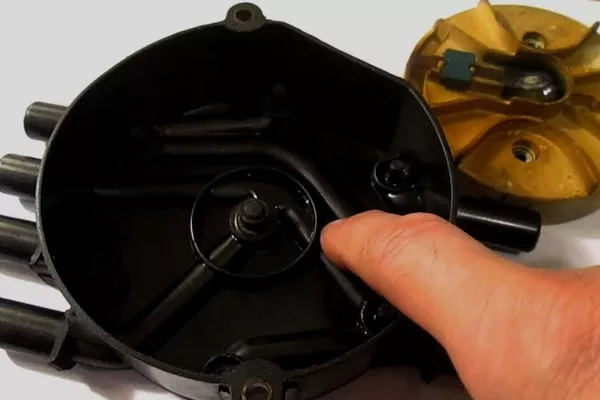
If you park your vehicle outside, chances are moisture has already accumulated in the vehicle’s distributor cap
5. Improper or bad use of the clutch in stick-shift cars
For a stick-shift car, the clutch connects your engine to your transmission, then the wheels. Meaning, once the clutch is suddenly disengaged after you shift gears, the connection will be interrupted and you will feel a jerking movement as you attempt to gain speed.
To prevent this from happening, you should practice to ease off the clutch and step on the gas pedal every time you shift gears. In short, you can prevent the jerking or sputtering of your car when accelerating and decelerating by using the gas and clutch pedal properly. It will also help you drive smoothly.
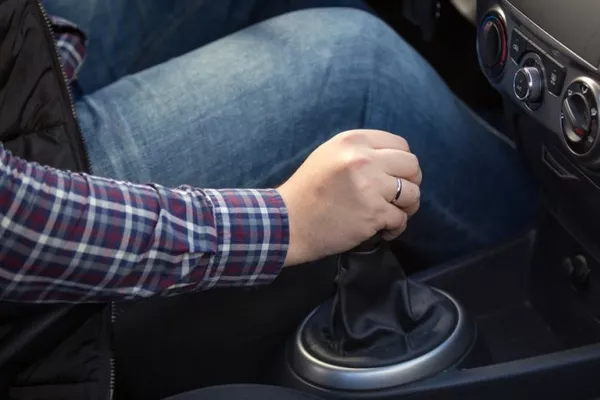
You should practice to ease off the clutch and step on the gas pedal every time you shift gears
Conclusion
A sputtering or jerking car is an annoying and frustrating experience for drivers and car owners. The good thing is, the issues causing the car to jerk every time you accelerate can be prevented and resolved. More often, dirt is the main culprit why a vehicle jerks when you are gaining speed.
This means regular car and engine cleaning is crucial for the overall health of the car. It's also important that your car gets checked and serviced annually by a qualified mechanic.
Doing so will lessen the chances of potentially dangerous mechanical issues, including damaged fuel lines. They will also be able to address underlying problems before it causes further damage to the entire engine.
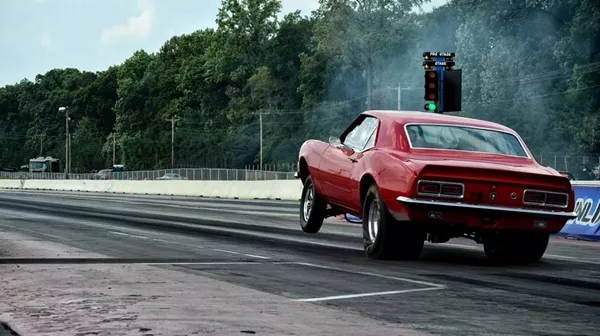
A sputtering or jerking car is an annoying and frustrating experience for drivers and car owners
Having the knowledge to identify and troubleshoot basic engine problems such as misfires is an advantage because it allows you to save money spent on mechanic visits. Additionally, you should remember not to drive a misfiring engine mainly because it will only cause further damage to the engine.
If you continue to drive, you only increase the repair cost -- if you don’t ruin the engine completely. Don’t forget that it is also something that compromises you and your passengers’ safety, especially if the engine suddenly conks out in the middle of a busy road.
Recent posts
- Get familiar with different manual transmission gears Sep 16, 2021
- Reckless Driving in the Philippines: All about its consequences, penalty & more Aug 25, 2021
- Car tire puncture: Causes, how to prevent and more! Aug 17, 2022
- Fast drives tip: Car features and modifications for acceleration Jul 26, 2019
- 7 Steps to Handle a Stuck Accelerator Pedal Aug 16, 2022












